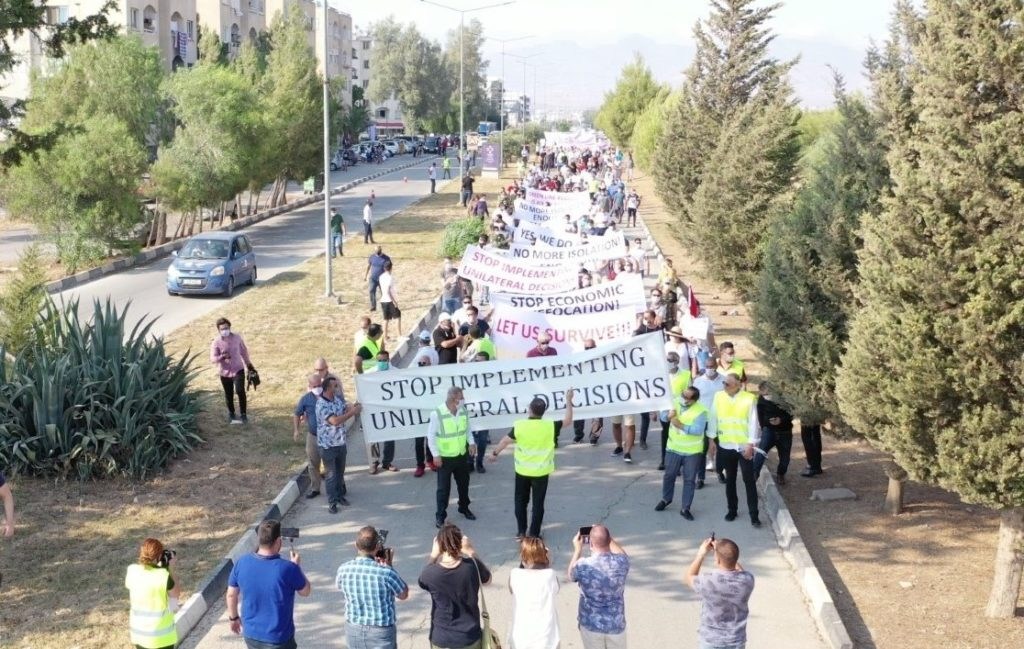Turkish Cypriots demonstrated last week against border controls imposed by the Greek Cypriot government at crossings on the Green Line, a demilitarized zone which is dividing the island.
Since 1974, Cyprus has been divided into a Greek Cypriot part, the Republic of Cyprus, and a northern Turkish Cypriot part on about one-third of the island. In 1983 the northern part declared itself the Turkish Republic of Northern Cyprus (TRNC), which is only recognized by Turkey.
With the outbreak of the coronavirus, the Greek Cypriot government decided in the beginning of March to close 4 of the 9 crossing points between the southern and the northern parts of the divided island. The Turkish Cypriot government protested against the decision which it considers as unilateral.
The crossing points were reopened in phases in June allowing all Cypriot citizens to cross the Green Line but the movement of of non-Cypriot citizens, including EU citizens and third country nationals, is restricted.
The Ledra Street crossing in Nicosia, one of the main crossing points used by foreign tourists entering into Northern Cyprus, is still closed and is causing damage to the Turkish Cypriot economy, according to the demonstrators.
A spokesperson of the European Commission confirmed that crossing points at the Green line have been reopened in both directions, with the exception of the one in Ledra Street, for Cypriot citizens and all those who legally reside in Cyprus.
The closure of the Ledra Street crossing has been justified by the Greek Cypriot authorities on the ground that it is a narrow space making social distancing impossible. A ban on non-Cypriot citizens crossing the Green Line, however, could be non-compatible with the Green Line Regulation.
“We are looking at reports that only Cypriot citizens and those permanently residing in the Republic of Cyprus were being allowed to cross the Green Line into the Republic,” the spokesperson told The Brussels Times (20 July).
“We recall that measures taken at the crossing points need to be compatible with the Green Line regulation. Any restrictions on public health grounds need to be proportional and non-discriminatory.”
An UN-led peace process was relaunched a few years ago by UN Secretary-General Antonio Guterres, who proposed a framework for a solution of the Cyprus issue. One of the six parameters was the free movement of goods and persons with equitable treatment of Greek and Turkish nationals.
Despite few remaining divergencies between the two sides, the peace process has reached a standstill. In the current situation, with EU-Turkey relations under strain and Turkish drilling activities in the Exclusive Economic Zone of Cyprus that EU considers as illegal, a solution of the Cyprus issue is even further away.
M. Apelblat
The Brussels Times

